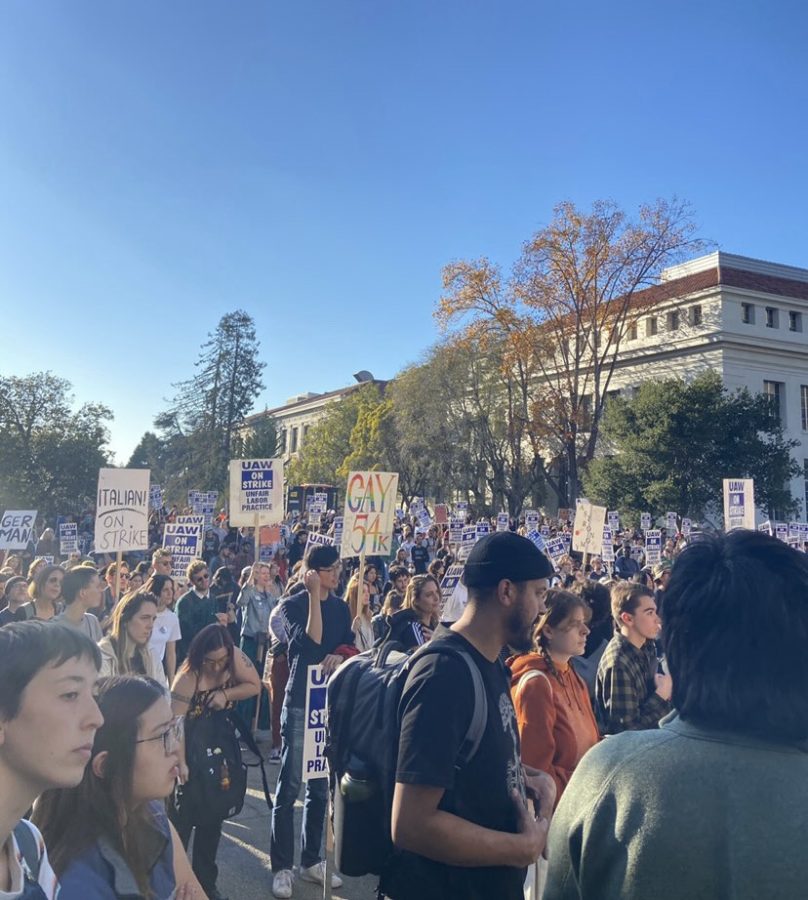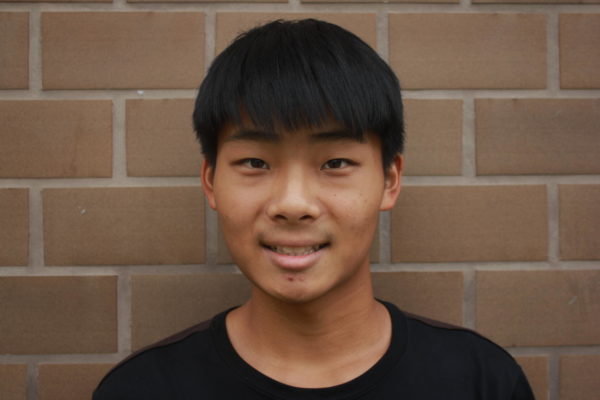UC protests spotlight workers’ rights and put a halt to students’ learning
December 12, 2022
Beginning on Nov. 14, over 50,000 academic workers across all campuses of the University of California have taken to the streets, demanding better pay and improved living conditions while college students are left on their own to study as finals week approaches.
The protests stem from the growing housing prices near UC campuses, leading many academic workers, in particular Graduate Student Instructors (GSIs), to struggle to pay rent. GSIs play an integral role in the UC system’s education. Most classes have a GSI who help the professor in answering student questions during office hours.
Lauren Dela Rosa, a former student at UC Berkeley and current teacher at Berkeley High School, has attended a couple of protests herself and understands the struggles that GSIs face.
“Grad students at Berkeley are living in poverty while working for the university,” Dela Rosa said. “I have a couple of friends who are working there that are stretched thin from work and studies and don’t have enough for rent, and we know how expensive college is on top of the stress. It’s definitely not sustainable.”
While GSIs have been struggling to maintain proper living conditions, little has been done to address the issue. Dela Rosa explains that while teachers and Graduate students have seen pay raises, it doesn’t account for the current economic situation of the country.
“We’re trying to bargain for higher wages, and while we did get a pay raise— when you count inflation—actually means that we are technically earning less money” Dela Rosa said.
However, since the start of the protests, it has become a school-wide issue as students are now left without their Graduate student instructors.
UC Berkeley freshman Pujitha Nachuri explains the importance of GSIs and how the protests have impacted many undergraduates at Berkeley.
“GSIs are the people that we always go to if you have any questions about the subject. You’re not asking your professors. You’re asking the GSIs,” Nachuri said. “We don’t have any support the last few weeks for whatever assignments you have, and I know some people still have midterms.”
The lack of support from GSIs, who are pivotal in helping students out, have also placed a lot of strain on professors. Because some classes such as Data Structures 8A have nearly 2,000 students, professors are unable to provide all students with help when requested.
Despite this, it seems as though there is a general consensus among the community that change is needed. Through the course of the first three weeks of striking, many have joined in on the support.
Dela Rosa explains that the perseverance of the protestors have shown the gravity of the situation and motivated more people to join.
“I was there at the end of the day, so they had already spent 10 hours out there since 8 a.m,” Dela Rosa said. “I was glad to see that they were sticking up for what they deserve.”
Others like Nachuri were inspired by the amount of attention the academic workers were getting.
“There were hundreds of people [at the protests]. I knew the strike was getting a lot of attention, but I didn’t realize how much support it has and how much momentum and attention it’s getting” Nachuri said. “I was really inspired because it’s finals season and there were genuinely so many undergraduates who cared about this movement and took time out of their day.”
The UC Strikes have become one of the largest protests between all UC campuses. The attention has even led to support from political figures like Senator Bernie Sanders and Representative Alexandria Ocasio-Cortez who stand with the students.
Despite all of this, it is unlikely that the protests will end anytime soon and many students are beginning to lose faith in the institution.
“I feel like more resistance is probably going to happen and I don’t really have faith in the institution to change,” Dela Rosa said. “I know that people will still keep pressing for change, so I think this is setting a good tone for future things.”






